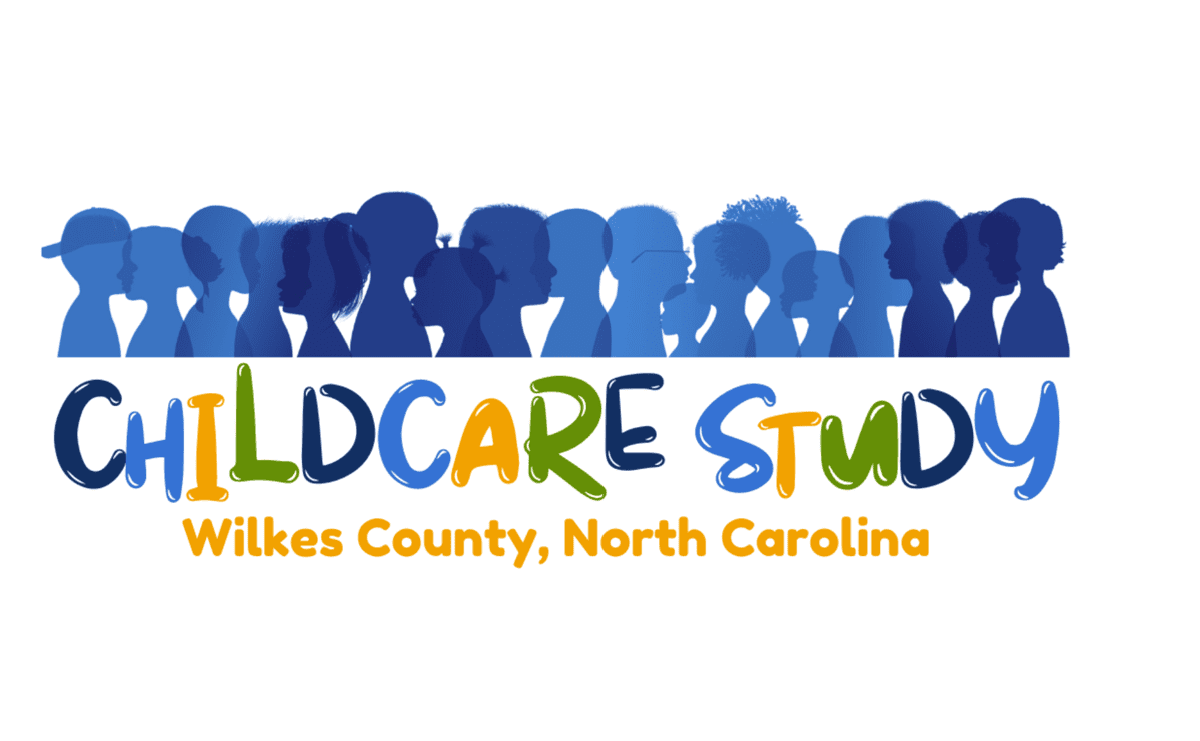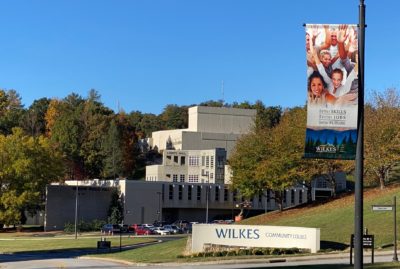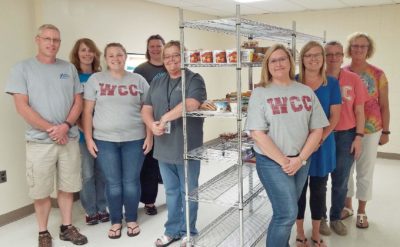

|
|
This series takes a look at the role community colleges can play in economic development.
- This community college created a playbook other colleges can use to establish a student success center with a goal of doubling the graduation rate.
- This community college co-founded a nonprofit to bring higher-paying jobs to the region and is building spaces for workers to come together, revitalizing downtowns.
- This community college is working with a taskforce to connect workers to high-quality, affordable child care, allowing them to stay in the region to work.
With this strategic focus on economic mobility for students, economic prosperity for workers and employers, and economic impact for the region, the future of work is happening right now in Wilkes County.
“If you don’t have child care, you can’t go to work,” said LeeAnn Nixon, the president of the Wilkes Economic Development Corporation.
The population of the northwest region in North Carolina is aging, and these communities can’t afford for parents to opt out of work because child care isn’t available. They can’t afford it now. They can’t afford it in the future.
With supports for student success in place and a nonprofit connecting graduates to work opportunities and innovative office spaces that are revitalizing downtowns, leaders in Wilkes County turned their attention to child care.
“Improving access, quality, and affordability of child care in Wilkes County is both a social and economic imperative,” said Craig DeLucia, CEO of the Herring Family Foundation in a press release. “Every day, we hear stories about the impact of insufficient child care on the local workforce and local economy. We need the research, data and recommendations as to how we can address this as a community, especially now as Wilkes County is positioned for renewed growth.”
The Foundation funded a 10-month study running in three phases: discovery, analysis, and recommendations. The discovery phase is happening now, starting with community meetings that will be followed by extensive surveying and focus groups.
Nixon chairs the task force leading the study, which includes researchers and leaders from Wilkes Community Partnership for Children and The Health Foundation.
Here is the press release about the study.
Here is the study’s website to learn more, including more information about who is on the task force, the timeline, and a way to sign up for updates.
Zach Barricklow, the vice president of rural innovation for Wilkes Community College, said high-quality, affordable child care can operate as an economic and labor market constraint on a region if it is not available or an economic opportunity for growth if it is available.
Parents need to believe, he said, that they can both work and have their child in a safe, supported learning environment.
And affordability really matters, Barricklow said. “At what point does the pay scale actually support child care on the parent’s side?”
Working parents, he said, have to make more money than child care costs and enough more to feel like it is worth it. Parents with lower incomes, he explained, often find themselves in a mathematical quandary: they may get a raise or promotion, and their income growth is just enough to knock them out of eligibility for public subsidies but not quite enough to actually afford child care and housing on their own. They are stuck on “the bubble” as he calls it, in between subsidy and self-sufficiency.
Affordable child care makes the decision simpler and easier for parents to take that job, promotion, or raise. It also contributes to the overall labor force participation rate.
Wilkes Community College will be an important part of the future of child care in the region.
Barricklow said the child care barrier comes up for students, whether reskilling, upskilling, or seeking a degree. It comes up, he said, for workers as they seek employment and for the employers who need credentialed workers to be profitable.
And the community college trains the early child care workforce.
“As a community college,” he said, “we are on all sides of it, supporting the students, the workers, and the employers.”
Nixon, the president of the Wilkes Economic Development Corporation, picked up his train of thought.
“When children are birth to 3, that is the time the brain is forming. Ninety percent of brain growth is actually happening before kindergarten,” Nixon said. “It’s such a crucial time for education, social skills, and learning. Investing in this critical component will lead to a better quality of life and a vibrant economy.”
In the end, this series tells the story about the role communities colleges can play in the economic development of the communities they serve. It requires vision and leadership, and the collective commitment to tackle one barrier after another from supporting student success to child care. With this strategic focus on economic mobility for students, economic prosperity for workers and employers, and economic impact for the region, the future of work is happening right now in Wilkes County.





